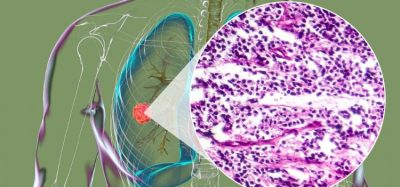FDA grants Breakthrough Therapy Designation for Roche’s investigational cancer immunotherapy MPDL3280A
Posted: 2 February 2015 |
US FDA has granted Breakthrough Therapy Designation for Roche’s investigational cancer immunotherapy MPDL3280A (anti-PDL1) in non-small cell lung cancer…


Roche announced today that it has received a second Breakthrough Therapy Designation from the United States Food and Drug Administration (FDA) for its investigational cancer immunotherapy MPDL3280A (anti-PDL1). The designation was granted for the treatment of people with PD-L1-positive (Programmed Death-Ligand 1) non-small cell lung cancer (NSCLC) whose disease has progressed during or after platinum-based chemotherapy (and appropriate targeted therapy for those with an EGFR mutation-positive or ALK-positive tumour).
“Lung cancer is the leading cause of cancer death globally, and we are pleased the FDA has granted breakthrough designation for MPDL3280A in non-small cell lung cancer,’’ said Sandra Horning, MD, Roche’s Chief Medical Officer and Head of Global Product Development. “We are committed to personalised healthcare, developing medicines like MPDL3280A with companion tests that may help us identify those who may be appropriate candidates for our medicines.”
This breakthrough therapy designation is based on early results of MPDL3280A in people whose NSCLC was characterised as PD-L1-positive by an investigational test being developed by Roche. All studies of MPDL3280A are prospectively evaluating PD-L1 expression. Some studies will evaluate the medicine regardless of a tumor’s PD-L1 status; other studies are evaluating the medicine only in people whose tumors are characterized as PD-L1 positive.
Breakthrough Therapy Designation is designed to expedite the development and review of medicines intended to treat serious diseases and to help ensure patients have access to them through FDA approval as soon as possible. The FDA granted the first Breakthrough Therapy Designation for MPDL3280A in metastatic bladder cancer in 2014. Ongoing pivotal studies of MPDL3280A include lung and bladder cancer, and we plan to initiate Phase III studies in additional tumor types this year.








